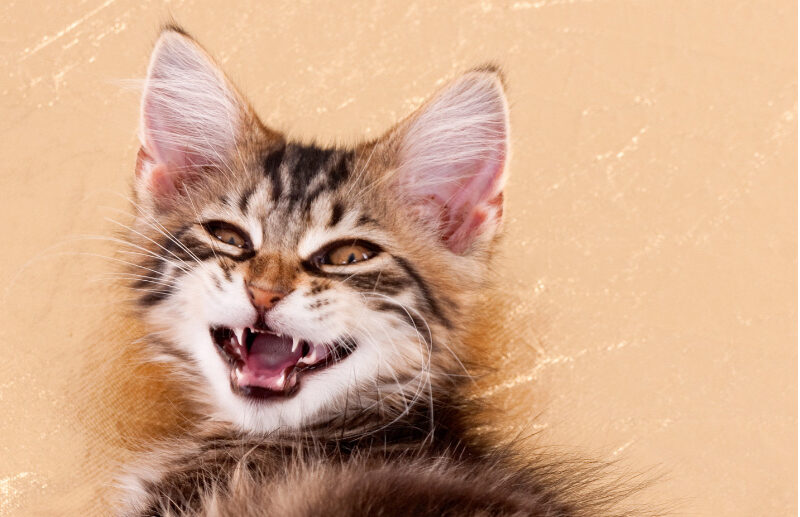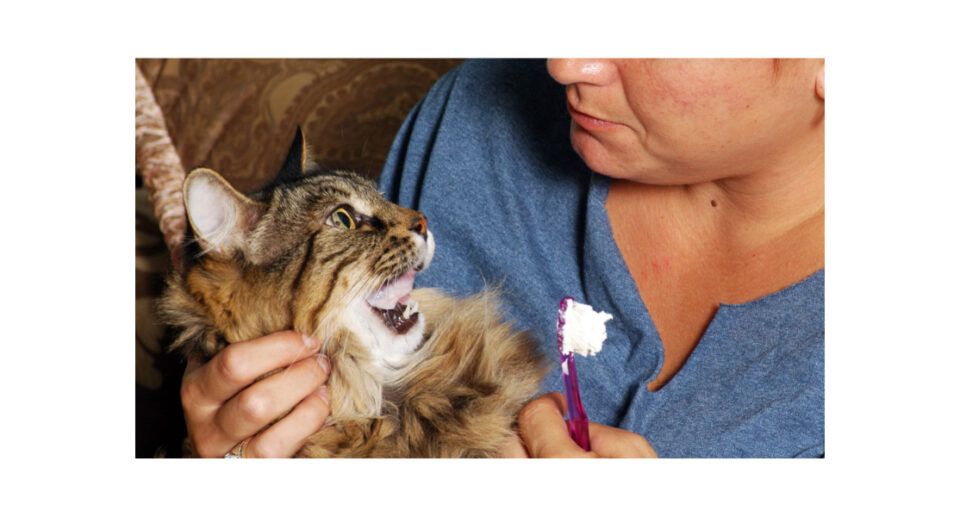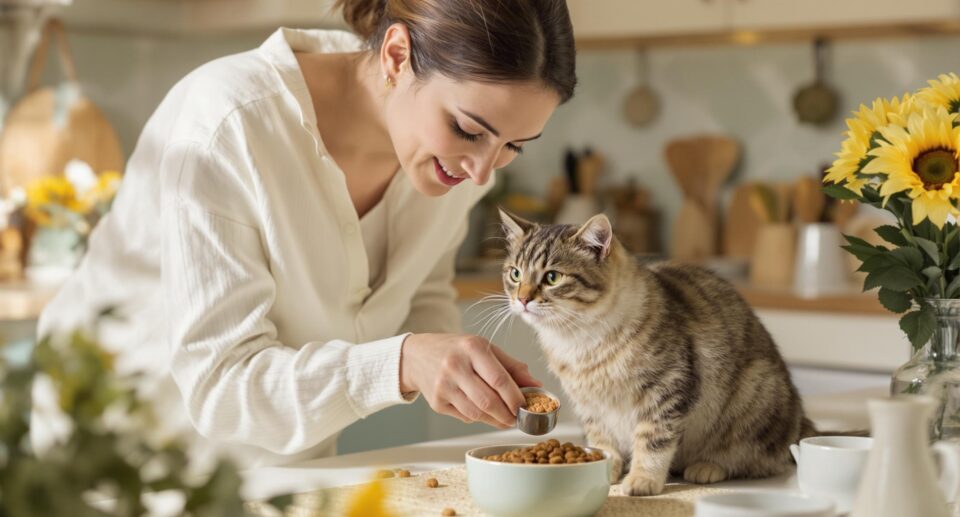When Do Kittens Lose Their Baby Teeth?

Just like children, kittens have a set of deciduous or baby teeth that will fall out as their permanent adult teeth grow in. Get to know the stages of dental development in cats and learn what complications to look for to ensure your kitten’s teeth are coming in strong and healthy.
Dental Development Timeline for Kittens
Kittens are born without teeth. They will begin to erupt through their gums at about two weeks of age. You most likely brought your kitten home when they were eight weeks or older, and at that time they will have a full set of 26 baby teeth.
Your kitten’s baby teeth are small, thin, and fragile. Though most kittens will not begin to show signs of dental disease until a little later in life, their baby teeth can still be prone to tooth decay. They can also suffer cracks and fractures during rough play, a run-in with a car, or a fall.
Even though baby teeth are not permanent, they should be kept clean and healthy, and should be treated in the event of breakage, infection, or injury. The health and placement of baby teeth will impact the development of adult teeth later on.
Around 11 weeks of age, your kitten will begin to lose their baby teeth. Beginning with their incisors, followed by their canines and molars, their adult teeth beneath the gumline will begin to move upwards, dissolving the roots of the baby teeth above them. The baby teeth will then become loose and fall out.
As your kitten’s baby teeth fall out, you might find the tiny white crowns around your home. Often, though, the kitten will lose teeth while they are eating and playing, and may swallow them.
By the time your kitten is seven months old, they will have lost all of their baby teeth, and they will have a full set of thirty adult teeth. This is a good time to schedule a veterinary appointment to ensure your kitten’s teeth have developed properly.
Retained Baby Teeth in Kittens
The most common complication in teething kittens is retained baby teeth. Normally, each adult tooth grows directly below its corresponding baby tooth. Sometimes, though, the adult tooth grows alongside or behind the baby tooth. The root of the baby tooth does not dissolve, so it will instead remain in the mouth instead of falling out.
Retained baby teeth leads to overcrowding. Some eventually fall out on their own, but by then, the adult tooth will have firmly set into an improper position. Crowded or improperly positioned teeth often have nooks that collect food particles, leading to increased dental disease and decay.
Sometimes a tooth that grows in the wrong position will rub up against the gums, roof of the mouth, or other teeth, causing difficulty chewing food and/or sores that can become infected.
Check in with your veterinarian around six months to make sure your kitten does not have any retained or mispositioned teeth, or if you notice anything out of the ordinary. Retained baby teeth may need to be extracted during a simple surgical procedure, which can usually be done at the same time as your kitten’s spay or neuter.
Also, make sure your kitten is eating a kitten or all-life-stages diet. If they eat a homemade or raw diet, make sure it is complete and balanced. Kitten food contains the right balance of calcium, phosphorus, and magnesium to build strong, healthy teeth.
Caring for a Teething Kitten
As your kitten loses their baby teeth, they may drool, occasionally with a bloody tinge. The breakthrough of new teeth can be painful, and they may chew toys, objects, or even your fingers to relieve the pressure. Make sure your kitten has access to plenty of appropriate toys to chew. You can also dampen and freeze a plush cat toy to create soothing teether.
Kittenhood is the perfect time to start caring for your cat’s teeth. You can teach them to become accustomed to having their mouth examined and cleaned. Using a cat toothbrush or finger brush plus a little bit of pet toothpaste, gently clean the outer surfaces of your kitten’s teeth.





